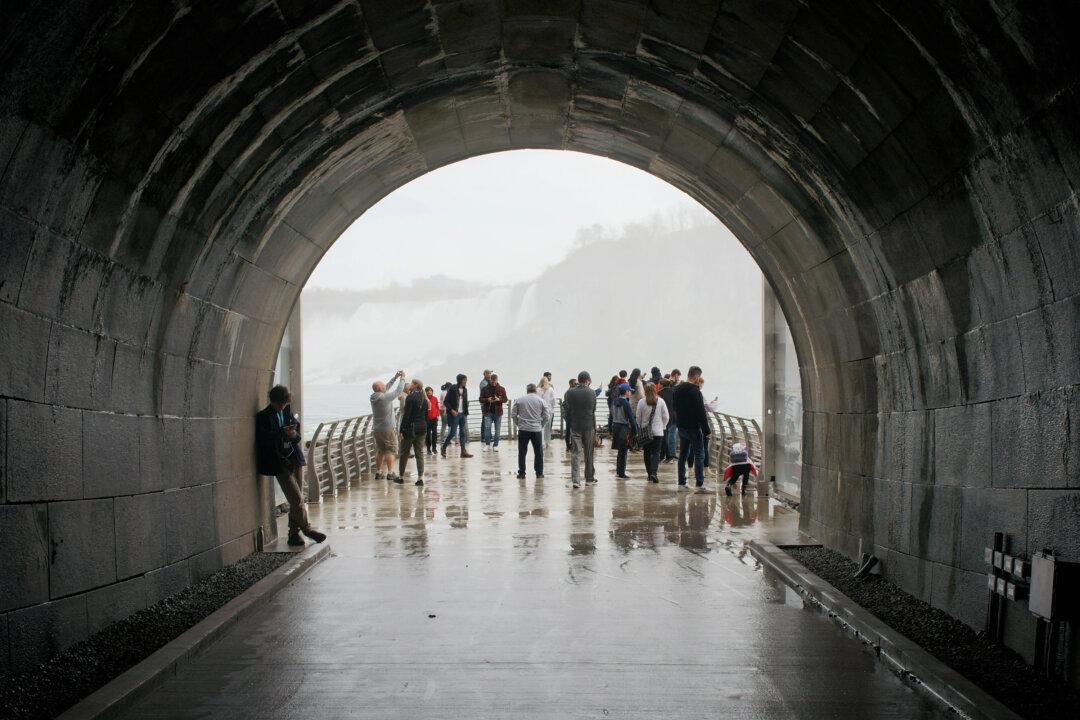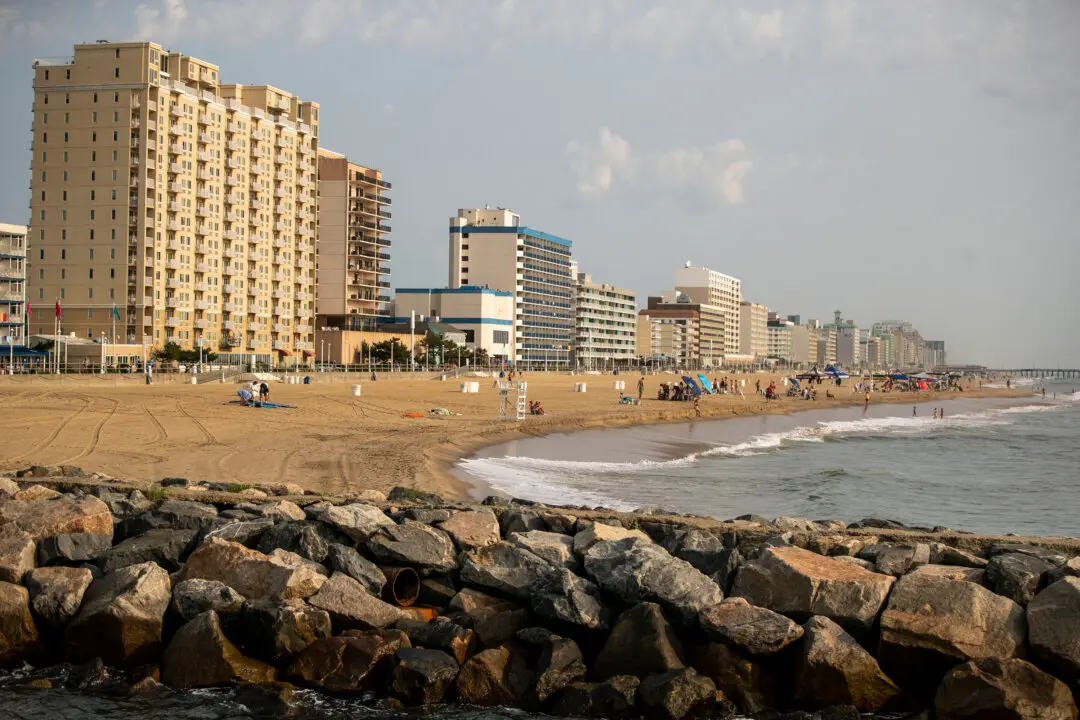Niagara Falls–The grandeur of Niagara Falls keeps tourists seeking new and better views of the natural wonder—and it’s easy to find them. On both the American and Canadian sides of the river, you can gaze from lookouts, boat tours, a bridge, towers with wide windows, helicopter rides, and even a zipline.
But the newest view in town may also be the most fascinating. It’s found at a decommissioned hydropower station that for 100 years generated electricity for several Canadian cities. Now you can walk through the 2,200-foot tunnel that once carried water from the plant back into the Niagara River, bringing you to a viewing platform only 100 yards from the bottom of Horseshoe Falls. That puts you within mist range (no worries, rain ponchos are provided), with a stunning view that has never before been offered to tourists.
Visitors view Horseshoe Falls from the platform on the Niagara River’s edge outside of the renovated Niagara Parks Power Station. (Colleen Thomas/TNS)






